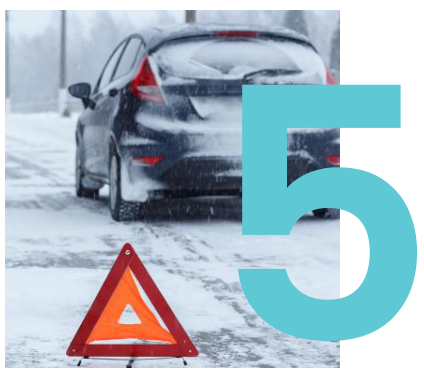Five Ways Kidney Patients Can Prepare for Winter
Contributor: Susan Thompson (courtesy Ontario Branch)
Winter risk awareness is essential for preventing injury or health decline, especially for individuals living with a chronic disease who can face increased susceptibility to fractures and other complications from a fall. Anemia, fatigue, loss of muscle mass, and some symptoms brought on by medications, including dizziness, electrolyte imbalance, and weakness, can increase such risks. Bad weather can impact dialysis appointments and the ability to pick up prescriptions. In addition, it can dry out skin, which increases itchiness—a frustrating symptom of some kidney conditions. Use these tips to avoid these risks and ensure a healthier winter season.
Avoid Falls
Winter footwear should be well fitting and have a nonslip base. While most public places take care to ensure walkways and entrances are well salted or sanded, it is important to be prepared for slippery conditions, utilize handrails, and ask for assistance if you are presented with an unsafe situation. Ensure you use any ambulatory aides safely and that they are in good repair. Staying fit is helpful for maintaining balance and strengthening muscles that support bones. The Kidney Wellness Hub has a number of on-demand classes to help improve core fitness and reduce these risks.
Maintain Skin Care
Kidney disease can cause itchiness, dry skin, and rashes. Reasons for this can include elevations in phosphate levels, allergies, and changes in fluid intake. To help with winter skin conditions, take phosphate binders as directed. If having a bath, use lukewarm instead of hot water, which can leave your skin even drier, increasing itchiness. Fragrance-free soap and detergent may also cut down on irritants, and cold compresses can offer some relief. Ensure you moisturize your skin daily. This helps with decreasing the need to scratch your skin as well as making the skin more resilient to other breaks or tears. Some lotions can irritate skin, so ask your healthcare provider for assistance if you are unsure which to use.
Also, remember to keep fingernails short. Not only does it reduce the risk of scratching, but long nails can harbour dirt and bacteria. Short nails make it easier to keep your hands clean, reducing the risk of transferring germs to your skin, which can lead to breakouts or infections.
Manage Medication
While it is always important for renal patients to stay on top of their medication, the potential for harsh weather makes this even more critical. Refill any medication you are running low on, and speak with your nurse or physician if you require a prescription renewal to ensure you always have enough medication to last a few days should you not have access to a pharmacy. You may also want to keep other supplies on hand, such as needles, syringes, or glucose stripes. Maintain a current list of your medications with you in case of emergencies.
Annual Flu Shot
People with diabetes and kidney disease are at elevated risk for serious complications from respiratory illnesses. Getting the flu shot reduces your chances of being infected with the flu and other respiratory viruses, including COVID-19, at the same time. This helps prevent serious illness. It protects people close to you because, when vaccinated, you are less likely to spread the virus to others. According to the Government of Canada, staying up to date with all vaccinations, including COVID-19, will help to keep you protected during flu season.
Prep for Bad Weather
We all know that winter weather can be unpredictable. This presents a challenge when trying to keep regular dialysis appointments. Establish your back-up plan early in the season. You might need someone who can help you get to appointments. Communicate with your dialysis team, who may be able to schedule an alternative appointment. Stay aware of current weather conditions through local radio or television stations, and limit outings to those that are absolutely necessary when road conditions are bad.
If stuck at home for a few days, ensure you have extra batteries and a flashlight, and at least a three-day supply of food. Consider speaking with your dietitian about a meal plan in case of an emergency.
This article is republished from the Kidney Magazine.





